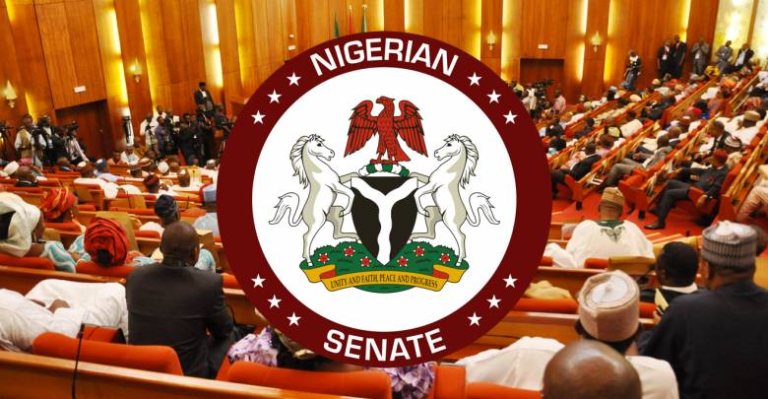
ABUJA- THERE is a stalemate and confusion in the Senate as the Upper Chamber over the feasibility for the implementation of the Financial Autonomy granted to the 774 Local Government Councils across the country by the Supreme Court in August this year.
Trouble started on Wednesday in the Senate soon after the sixth item which has to do with Petitions was handled when Senator Tony Nwoye, LP Anambra North came up with a Point of Order which was sustained by the President of the Senate, Senator Godswill Akpabio
Nwoye who came through orders 41 and 51 of the Senate Standing Rules, moved a motion on alleged moves by some state governments to circumvent the implementation of the judgement on LG Autonomy through counter laws from their respective State House of Assembly.
As he was still speaking to his colleagues at the hallowed Chamber, Nwoye ran into confusion over the matter, just as he told the Senate that nine other Senators had co-sponsored the motion.
He specifically alleged that some State Governors are already using their House of Assembly to enact laws that would mandate respective local government councils in their states to remit monies into State / Local Government Joint Accounts ruled against by the Supreme Court.
Immediately he rounded off his presentation containing six prayers for enforcement of the judgement and seconded by Senator Osita Izunaso, APC Imo West Senator Adamu Aliero, PDP Kebbi Central raised a constitutional point of order for stoppage of debate on the motion.
Adamu Aliero who cited section 287 of the 1999 Constitution that makes Supreme Court Judgement enforceable across the country, urged the Senate not to overflogged the issue.
Aliero said, “Supreme court judgement is enforceable across the country . There is no need for us to be debating anything that has to do with it here “, he said.
Agreeing with Senator Aliero, Akpabio raised another constitutional issue as he called on the attention of Senators to section 162 sub-section 6 of the 1999 constitution.
The section according to Akpabio, created the State / Local Government Joint Account, which has to be amended in paving the way for full implementation of the Supreme Court Judgement.
Akpabio said, ” I think what we need to do is to carry out required amendments of certain provisions of the constitution as far as local governments autonomy is concerned”, he said.
But before taking a final decision on the motion, the sponsor, Senator Nwoye hurriedly raised order 42 of the Senate Standing rules for personal explanation on the motion the same time, Senator Abdulrahman Summaila Kawu, NNPP Kano South ) raised a similar point of order.
The simultaneous points of Order brought confusion into the session with many senators rushing to the Senate President for a personal consultation, which eventually, made the Senate go to an emergency closed-door session at exactly 12: 46. pm.
Recall that the Supreme Court had in early August this year, barred the 36 governors of the federation from further retaining or utilizing funds that are meant for the 774 Local Government Areas, LGAs, in the country.
The apex court ruled that it was illegal and unconstitutional for governors to continue to receive and seize funds allocated to LGAs in their states.
The Supreme Court had maintained that the “dubious practice” which has gone on for over two decades, was a clear violation of Section 162 of the 1999 Constitution, as amended.
In its lead judgement that was delivered by Justice Emmanuel Agim, the apex court held that no House of Assembly of any state has the power to make laws that could, in any manner, interfere with monies meant for the LGAs.
Stressing that the law mandated that LGAs must be governed by democratically elected officials, the Supreme Court ordered that forthwith, funds meant for the LGAs must be directly paid to them from the federation account.
The Supreme Court said, “Demands of justice require a progressive interpretation of the law. It is the position of this court that the federation can pay LGA allocations to the LGAs directly or pay them through the states.
“In this case, since paying them through states has not worked, justice of this case demands that LGA allocations from the federation account should henceforth be paid directly to the LGAs.”
It further declared unconstitutional the appointment of caretaker committees by governors to run the affairs of the LGAs. It held that the 36 states are under obligation to ensure democratic governance at the third tier of government.
The judgement was a sequel to a suit the Federal Government filed to secure financial autonomy for the LGAs.

Comments
Post a Comment